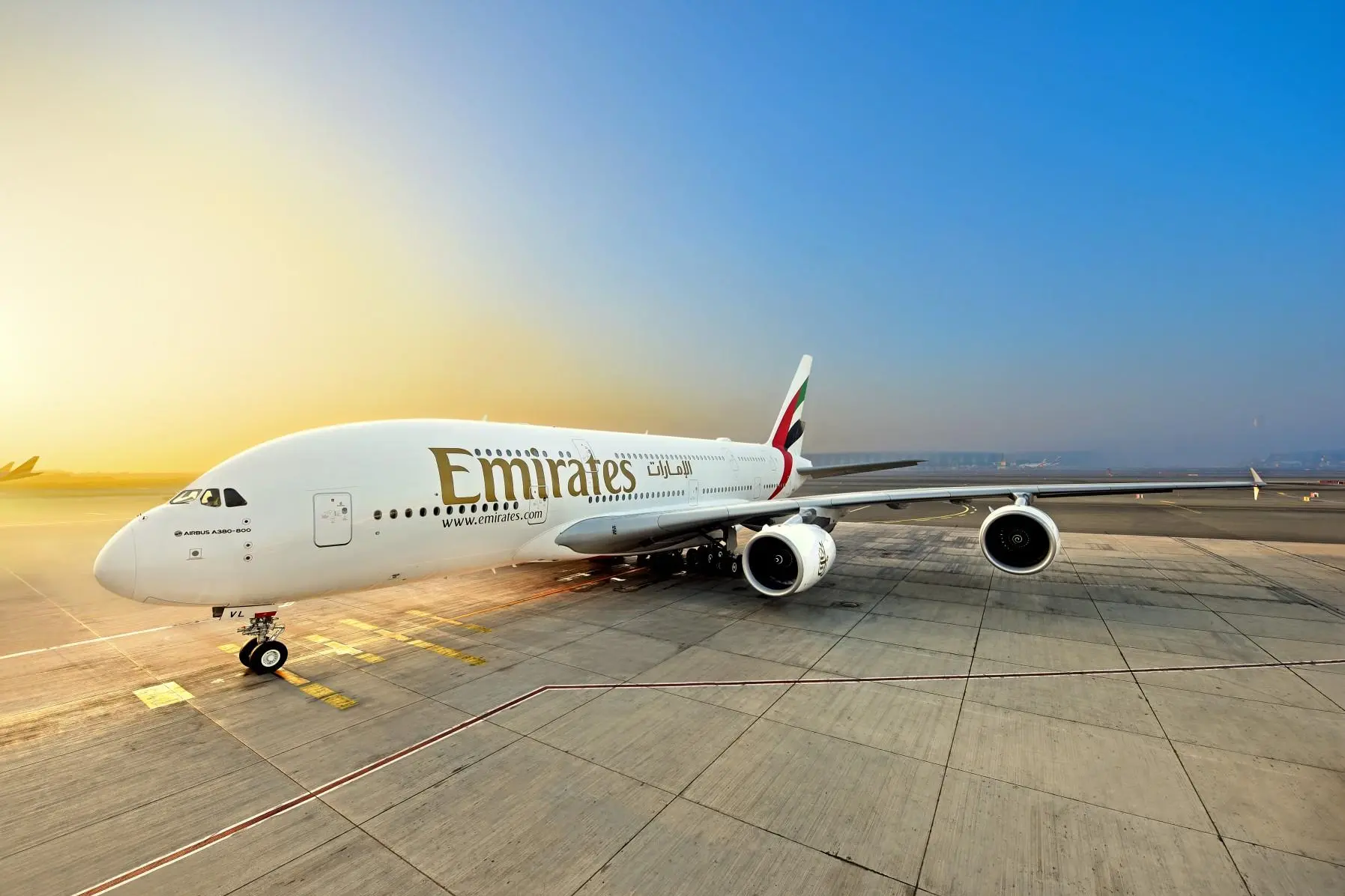PHOTO
It might take a while for airlines around the world to switch their passenger aircraft to green-friendly fuels, but for carriers in the Gulf region, sustainable air travel is in sight.
Emirates Airline on Monday confirmed that it is currently looking at ways to cut its carbon emissions by using sustainable aviation fuel “at scale” and in a cost-effective way.
The carrier’s latest A380, which was delivered on Saturday, flew to Dubai using a mix of jet fuel and biofuel produced from used cooking oil in Finland.
“This is a positive step towards reducing our overall emissions,” Sir Tim Clark, president of Emirates Airline, said on Monday.
Clark confirmed that sustainability indeed remains high on the agenda of the long-haul operator, citing that they are closely monitoring developments in that space. “We look forward to a time when it can be produced at scale, and in a cost competitive manner,” he said.
Emirates isn’t the only major player in the Gulf aviation market that is looking at reducing environmental impact. Etihad Airways last September announced that its newest 787-10 Dreamliner had completed a flight from Seattle to Boeing’s manufacturing site in South Carolina using a 50/50 mix of sustainable and traditional jet fuel.
“This is a monumental step forward for the sector to prove the viability of producing a 50/50 blend of sustainable aviation fuel at a high volume, an important moment for the industry,” said Mohammad Al Bulooki, Etihad Aviation Group chief operating officer.
Air travel may be down at the moment but is has been tagged as one of the leading contributors of pollutants, accounting for 2.4 percent of the total carbon footprint. A little over two percent might not look a lot, but according to the European Commission, the environmental impact is significant.
“If global aviation were a country, it would rank in the top 10 emitters. Someone flying from Lisbon to New York and back generates roughly the same level of emissions as the average person in the [European Union] by heating their home for a whole year,” said the commission on its website.
This underscores the need for players in the market to find ways to make flights become greener.
What airlines have done
Experts have said that the use of sustainable aviation fuel (SAF) can be effective in reducing carbon emissions. For years, World Energy and EPIC Fuels, a global fuel supplier, have been providing SAF to Boeing for use during flight testing.
The fuel has been certified for generating a reduction of more than 75 percent in carbon emissions over the life cycle of the fuel, compared to traditional jet fuel it replaces.
In January 2020, Etihad took the delivery of its 787-10 using a fuel mix comprising 30 percent SAF produced by World Energy. Prior to that, in January 2019, the airline flew the world’s first commercial flight using locally produced sustainable fuel made from plants grown in saltwater.
At Emirates, there have been efforts to push for the use of biofuel, Clark said. The airline, is part of the Steering Committee of the Clean Skies for Tomorrow coalition, established by the World Economic Forum to promote the development of SAF, he said.
“Emirates has also supported a series of webinars on the future of SAF in the UAE, hosted by Khalifa University. A third of Emirates’ crew transportation buses in Dubai currently are powered by biofuels, with one of its main crew bus transport contractors, Al Wegdaniyah, adopting biofuel supplied by Neutral Fuels,” Clark said.
“Emirates continues to take significant steps towards emissions reduction. In addition to operating modern and fuel efficient aircraft with an average age of 6.5 years, Emirates also has a comprehensive fuel efficiency programme that has implemented a range of initiatives including working with air navigation providers on ‘flex tracks’, or flexible routings that create the most efficient flight plan for each flight,” he added.
Short of supply
While SAF offers an effective alternative to make aircraft green-friendly, there isn’t enough supply of the fuel.
“Sustainable aviation fuels are proven and work in airplanes flying today and those that will fly tomorrow, but there’s very limited supply,” Sheila Remes, vice president of strategy at Boeing Commercial Airplanes, said last September.
“World Energy is making commercial-scale volumes or sustainable fuel at competitive prices, leveraging government low-carbon incentives to accelerate production and use in an industry that relies on liquid fuels,” Remes said.
(Reporting by Cleofe Maceda; editing by Seban Scaria)
Disclaimer: This article is provided for informational purposes only. The content does not provide tax, legal or investment advice or opinion regarding the suitability, value or profitability of any particular security, portfolio or investment strategy. Read our full disclaimer policy here.
© ZAWYA 2020





















